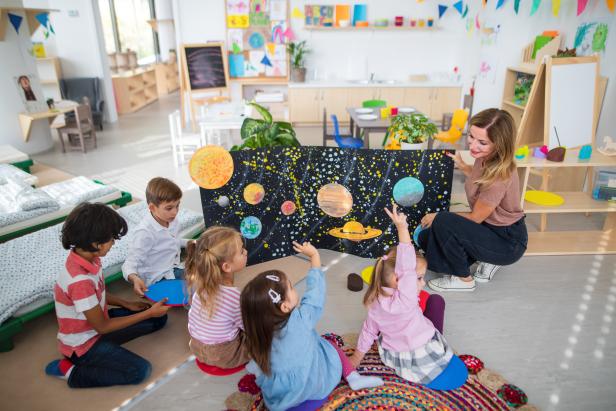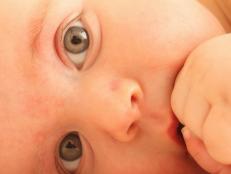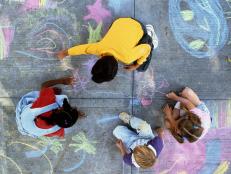Study Reveals How the Pandemic Affected Babies' Social Development And Behavior
Researchers say babies born during the pandemic are lagging behind in some areas.


Halfpoint Images
The entire world changed for all of us during the pandemic. The babies that were born during the mandated lockdowns are now toddlers and many are entering preschool. While children at this age are developing at different rates, one study suggests that many of the babies born during the pandemic are now showing delays in a few key areas. While the results of this study are concerning, there’s good news for parents.
According to a study by the Royal College of Surgeons in Ireland, many of the babies born during the pandemic had very little interactions with children their own age and family members outside of the immediate family they lived with. Researchers believe these children heard fewer words in their first year of life because they were not leaving their homes, attending daycares, or going on playdates. Because of this, these children may have slightly lower communication scores compared with those of children born pre-pandemic.
“We wanted to understand what life was like for babies born during the pandemic, and what it might mean for their general health and development,” says Susan Byrne, lead researcher on the study.
For the study, researchers followed 354 families of babies born in Ireland in the first three months of the pandemic, between March and May 2020. These babies and their parents were evaluated and surveyed at 6, 12, and 24 months of age.
"At each of the visits, we asked the parents for lots of information on their babies' lives and development by way of questionnaires," says Bryne.
At six months, Bryne says an average of only three people had kissed the babies, including their parents because these children hadn't met many relatives or family friends. Also one in four babies had not met another child their own age by their first birthday.
"We also asked parents what it felt like to raise a baby during the pandemic. Words such as "lonely," "isolating," and "challenging" appeared repeatedly. Some positive themes emerged, too, including parental bonding with the new baby and more family time due to the lockdown restrictions," Bryne says.
Researchers noted they saw no drop in motor skills, sleeping patterns, and problem-solving skills in pandemic babies in comparison to pre-pandemic babies.
"Covid restrictions ended quite a while ago, and babies have been out and about doing normal activities, meeting other people, going to play groups. And you’d hope that the findings would settle by the age of five, but we need to find out conclusively if that is really the case," says Bryne.
Next up, researchers are hoping to follow these children into early elementary school to see if there are any common trends in their development.
For parents who are concerned and see some of the same communication delays occurring with their children, Bryne says let them explore the world. Between school, playdates, and playgrounds, kids will improve their communication skills the more they are exposed to other kids and adults. If you are still having concerns, talk to your pediatrician to see if your child would be a good fit for additional support like speech therapy.
YOU MIGHT ALSO LIKE:















